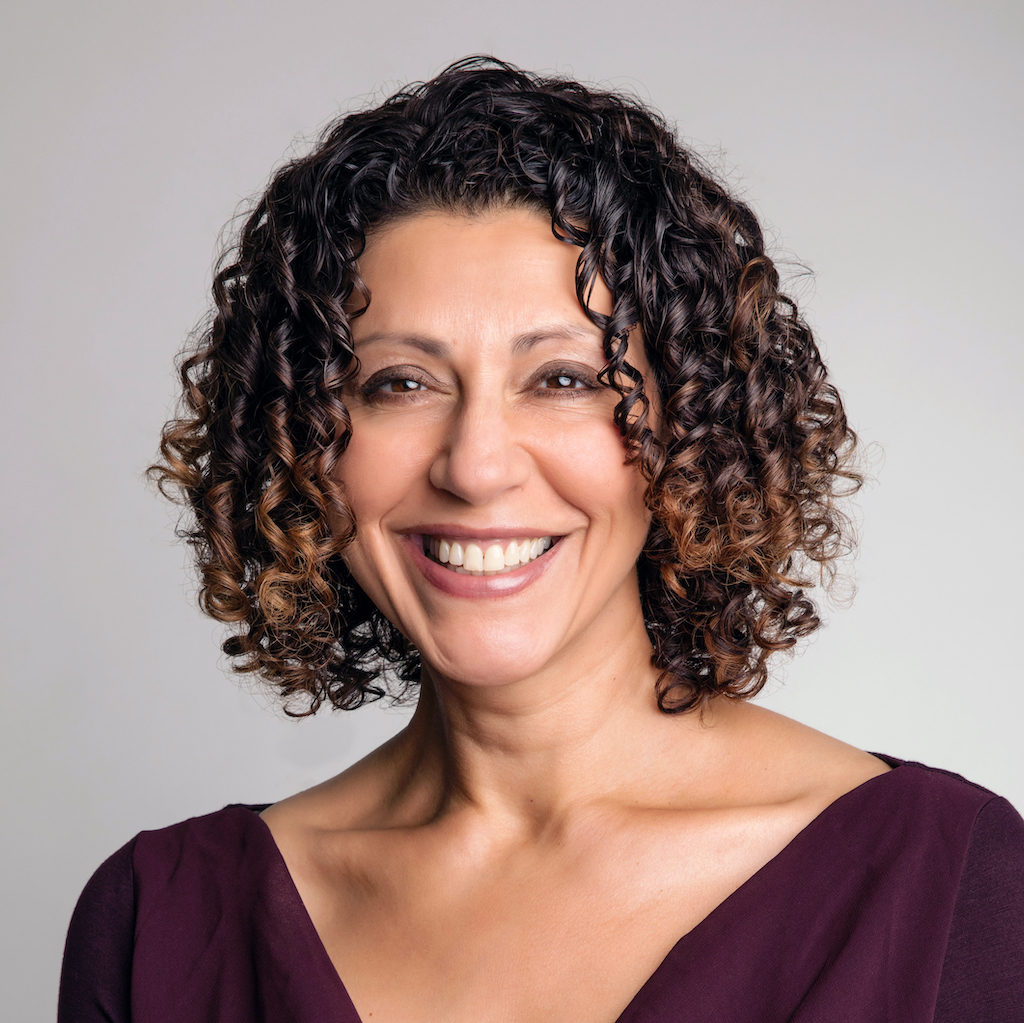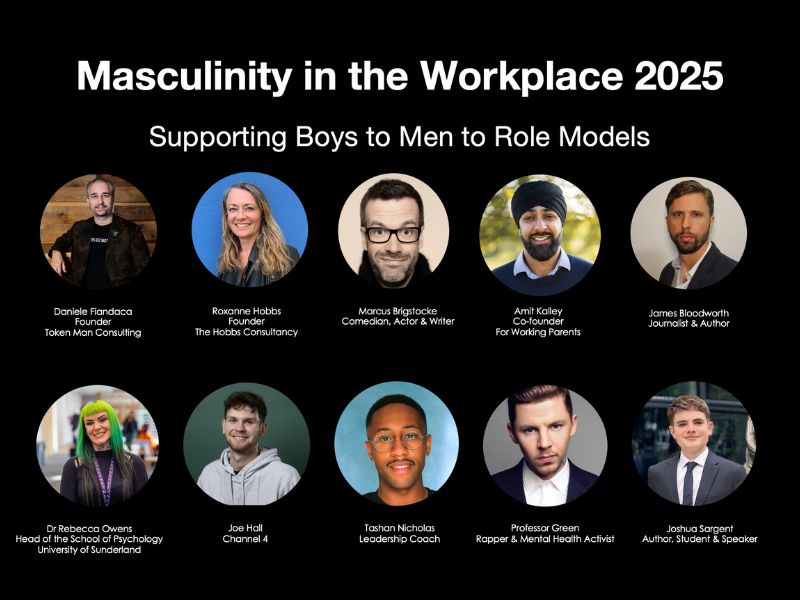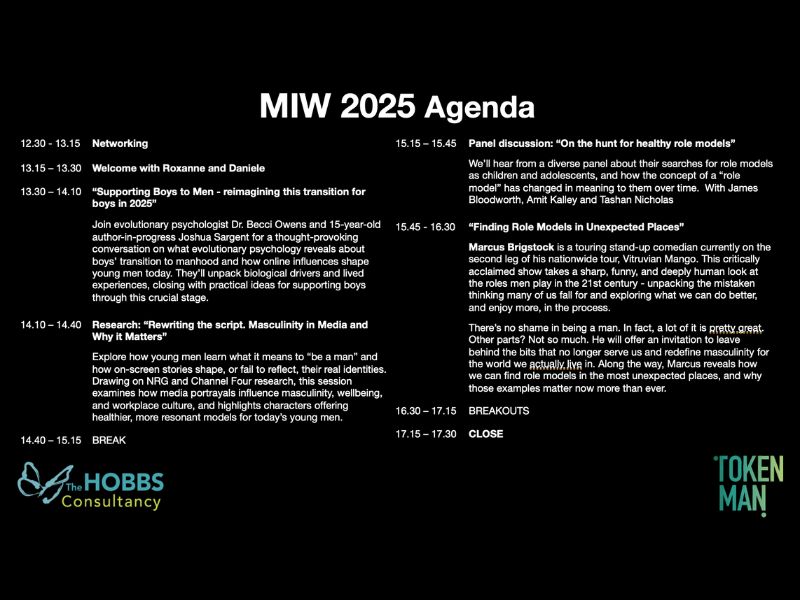
She has postgraduate degrees in psychology and family therapy, a Master’s in public sector management and a Master’s and Doctorate in organisational change.
Nelisha works internationally teaching and consulting on healthy growth. She is an Associate Fellow at Oxford Saïd business school, and founding director of The Dialogue Space, which provides unconventional, whole-person therapy and coaching for individuals, groups and organisations. Her professional practice combines brain science and developmental psychology to develop individual, team and system resilience.
She is also the author of Being with Others: Curses, spells and scintillation (Triarchy Press), out now, priced £12.75
I emigrated from Sri Lanka in the early 70’s and grew up in Essex. I knew very early on that I wanted to be a psychologist, which was partly motivated by an unconscious need to understand and ‘fix’ my father’s depression and alcohol misuse.
My first job was as a ‘dependency counsellor’ in Arlington House, London. It was a ‘wet’ hostel for the homeless (meaning it accepted alcoholics and substance misusers) and my brief was to apply a ‘harm minimisation’ approach to enable them to maintain their lifestyle of choice in relative dignity. Once a week I was assigned the early morning ‘death round’ which involved touring this vast building to check whether anyone had died in the night. If no one responded to my loud knock I had to open their door with a master key and investigate. It was a dispiriting job and I didn’t last long.
Afterwards I joined the health service, where I managed clinics and an in-patient unit for addicts with a multidisciplinary team of doctors, nurses and social workers. We worked with addicts using detoxification drugs and a wide range of therapies to try and provide holistic and relational care. Yet the harsh reality was that relapse rates amongst the acutely addicted were, and probably still are, appallingly high. Most of my clients only maintained their sobriety or drug-free status for short periods before returning to their old habits. This recurring, vicious cycle of addiction frustrated me and after ten years I wanted to get out of mental health work and try something more creative, so I started an organic food business and restaurant.
However, along with the weddings, birthdays, anniversaries and christenings, I also witnessed and shared bottles of wine with customers who were bereaved, divorcing, facing financial ruin, struggling with old age and family rifts and once more I found myself trying to ‘solve’ human problems. I never lost the love of psychology and working in human development so after four years I sold the restaurant and began working as a business psychologist and leadership development consultant. Here I worked with the problems that can arise out of a compulsion to compete, achieve and accumulate.
Coaching and developing people in business and the corporate world is no less challenging than working with the mentally ill or drug addicted. When any of us becomes caught in the vicious loop of an unhelpful habit we encounter problems. It doesn’t matter whether that habit is alcohol, work, competitiveness, Facebook, our smart phone or long-distance running. Since then I have gone on to develop my own consulting and therapy practice, write two books, complete a doctorate degree and begin a second and teach executives how to increase their personal and relational resilience.
No. Although I always did, and still do have, a strong vocation for the psychological and for understanding why people feel, think and do the things they do. Even during my time at the restaurant I spent much time observing and trying to figure out the motivations and habits of the staff and customers!
I think my biggest challenge was to overcome a personal belief that I held for many years – which was that there is a solution to human suffering – and I could and should find it! This belief contributed toward punitive self-drive that propelled me towards exhaustion and burnout – which was a time of significant and lasting learning for me.
What I have learned is that suffering is part of the human conditions and cannot be avoided. Instead I now understand suffering as an experience of ‘falling from our centre’ and we all do this, sometimes many times a day. For me, the measure of health and happiness is not how to get rid of suffering and pain but how to get back to our centre as quickly as we can. When we get angry, fearful, depressed and anxious can we develop a way to bring ourselves back? It may only for brief periods but it is the ability to return to even momentary states of equilibrium that supports a growth mindset and helps us to manage the emotions which left unchecked can contribute to our downfall.
Completing my two books – which are a distillation of thirty years working in human development – whilst juggling life as a single parent and full time professional.
Discipline, the ability to refocus and manage distraction and the ability to notice and respond to bodily needs are extremely important habits/capabilities that have supported my success and developed my resilience.
My most helpful habit is to keep my mornings free for creative work. I am a morning person and I do my best thinking before noon. I am very disciplined in this respect and, unless it is absolutely unavoidable I will keep my mornings free of calls and meetings so that I can write, work on my teaching sessions and read.
My other helpful habit is to try whenever possible to have a short sleep in the afternoon and to go to bed as early as possible. I don’t have any technology in my bedroom and am awoken by a sunrise clock. The worst start to the day is be jolted awake by a loud alarm clock and a corresponding shot of cortisol and adrenaline!
In my profession mentoring is called ‘supervision’ where practitioners/coaches discuss their clients with a more experienced clinician. Business mentoring is similar in that people get advice and learn from of someone’s senior industry related experience. I think this it is very important to learn from people who have expertise and experience in your profession – but mentoring is different from and should happen in addition to coaching or therapeutic work where people develop deeper self awareness and insight which goes beyond performance and work and takes into account the whole person- their history, their current personal and professional challenges and their life purpose.
I don’t strive for equality but instead the respectful honouring of difference. Men and women are different and that is an advantage. Men and women would live and work more happily together if they could acknowledge and respect the difference and recognise the value of both.
Each of us is both masculine and feminine and when we try to deny one or the other quality we become conflicted and at odds with the world. A woman, striving to succeed in a so-called man’s world might ignore her feminine qualities and as a result feel empty or dissatisfied, and a man who only acts out his masculine qualities will feel so too.
It’s not easy though as the business and corporate world are dominated by masculine characteristics which value thinking over feeling, control and order over spontaneity and emergence, theories and objective facts over stories and personal experiences, categories over context and ideas and intellect over sensations and the imagination. However, without these missing feminine qualities both men women will feel something is missing and are unlikely to realise their full potential. Depth coaching helps people to learn about, relate to and integrate their masculine and feminine qualities which are more complex and nuanced than the stereotypical versions of how to be a man and how to be a woman promoted by popular culture. In my first book, Beyond Threat I offer three detailed case studies of depth coaching in the corporate world that explore how people approach this kind of self development.
I’d say don’t be so hard on yourself – there are different ways to drive yourself to achieve other than punitive self-criticism. I have spent years researching the impact of self-criticism in the body and brain and the value of self-compassion when it comes to sustaining peak states. So, I’d help my younger self understand that self-compassion is not self indulgent or weak and that research repeatedly shows that people who are self-compassionate have more sustained success and happiness than those who are not.
I’d also remind my younger self that so many of our problems come about because of habits we have learned early on in our lives in order to secure the love, attention and approval of our care givers. This instinct to belong compels us to become who we think we should be as opposed to who we actually are. So, I’d say to my younger self, It’s not your fault that you have developed these survival habits, but it may become your problem if you allow those childhood strategies to become your solutions to adult problems. Claim your independence of thought and action, you are no longer indebted or beholden to adult authority figures.
As a life long learner I have just begun a second doctorate in psychoanalytic clinical practice and my research will focus on how to develop methods for encouraging depth development in the workplace – in other words enabling people to acknowledge and work through deeply rooted problems that interfere with their ability to be their best.
Mental health problems are increasing and have been exacerbated by the pandemic. Now more than ever leaders need to understand and help their employees manage fear and anxiety. I am hoping that mental health will become a top priority at work and something that all employees have a chance to engage with and learn about
The most significant thing people can do is learn about and manage their threat brain emotions of fear, anger and anxiety. Overactivity in our threat brain is the prime cause of stress Threat brain starts in the body as a neurological reaction to something that is happening either in the external environment or within you (memories, for example can trigger threat brain). Because threat brain emotions are a physical response (measurable in the heart rate, blood pressure, neurochemicals and gut), the most effective action you can take is also physical.
First you can learn to notice your threat brain at an early stage of activation by paying attention to your body. Get familiar with the sensations in your stomach as emotions are often first felt in the gut (for example, churning, fluttering and bubbling) and learn to distinguish between what feels ‘normal’ and what feels unusual. Threat brain can also affect your digestion and is probably a significant factor in the rising cases of ‘irritable bowel syndrome’.
You can also feel threat brain when your breathing becomes more irregular and your heart races (although this can also be a sign of healthy drive emotions so be curious about the potential differences). Threat brain can also affect your sleep patterns leading to insomnia or a form of deep sleep which is highly dream active but which does not relieve tiredness.
Once you recognise the early signs of your threat brain you can learn strategies for soothing it quickly and before it erupts in unwanted and regretful speech and action.
November
06nov10:0015:00CPD Accredited Menopause Champion Course
06/11/2025 10:00 - 15:00(GMT+00:00)
Join us on our CPD Accredited Menopause Champion Course Our course includes practical tools, DEI considerations and step-by-step guidance to help Champions feel confident and equipped to offer real support — not just awareness. Here’s what’s included: Understanding Menopause
Our course includes practical tools, DEI considerations and step-by-step guidance to help Champions feel confident and equipped to offer real support — not just awareness.
Here’s what’s included:
Understanding Menopause
– Key stages and common symptoms
– How menopause impacts work and wellbeing
Diversity in Menopause
– Different experiences across cultures, health, age, and gender identity
Managing Menopause
– Overview of HRT, natural options, and practical strategies
Navigating GP Appointments
– How to self-advocate, track symptoms, and prepare for appointments
Supporting Colleagues
– Fostering openness, having sensitive conversations, and making adjustments
Creating Menopause Action Plans
– Step-by-step template to ensure support and inclusion
Championing Inclusion
– Guidance for supporting neurodivergent, disabled, diverse, LGBTQ+, and frontline staff
Your Role as a Champion
– Responsibilities, boundaries, signposting, and building trust
The course also includes:
✅ A Menopause Action Plan template
✅ Navigating GP Appointments document
Plus loads more free resources!
DATE: Thursday 6th November
DATE: Wednesday 17th December
Place: Zoom
Time: 10.0am – 3.00pm
Cost: £395 (including certificate)
19nov10:0013:00MenoMinds – Free Training for Women in Business | Menospace & Minds That Work
19/11/2025 10:00 - 13:00(GMT+00:00)
Introducing MenoMinds – Free Training for Women in Business We’re excited to share MenoMinds, a fully funded programme created by Menospace and
We’re excited to share MenoMinds, a fully funded programme created by Menospace and Minds That Work, supporting women in business, freelancing, or entrepreneurship through the emotional and mental challenges of menopause.
Wednesday 19th November | 10:00am – 1:00pm (UK)
Live on Zoom | 💷 Free (funded by NEBOSH’s Social Purpose Programme)
Menopause can affect confidence, focus and wellbeing — MenoMinds helps you take back control with practical tools and a supportive community.
You’ll explore the CARE Framework:
Includes a digital workbook and invitation to monthly community groups on sleep, nutrition and stress management.
Freelancers, entrepreneurs, and women in small or micro-businesses (under 50 employees).
Facilitators: Haley White (Menospace) and Victoria Brookbank (Minds That Work)
19nov12:3018:00Masculinity in the Workplace - 2025 (In-person)
19/11/2025 12:30 - 18:00(GMT+00:00)
Conway Hall
25 Red Lion Square, London, WC1R 4RL
Brought to you by Token Man and The Hobbs Consultancy. Welcome to Masculinity in the Workplace, designed specifically to

Welcome to Masculinity in the Workplace, designed specifically to engage men with creating inclusive cultures. Marking International Men’s Day, the objective of our event is to give men both the reason and the skills to lean into the conversation, while also providing women and non-binary people with the confidence to engage more men in culture change. Because ultimately we can only make real change by working together.
Date: Weds Nov 19 2025
Time: 12.30pm to 6pm
Location: Conway Hall, 25 Red Lion Square, London, WC1R 4RL
Our speakers will share their insights and experiences, shedding light on the evolving dynamics of masculinity, leadership and culturein diverse work environments. You’ll have the chance to ask questions, participate in interactive sessions, and network with like-minded professionals.
The theme for this year is ‘Supporting Boys to Men to Role Models’. This year’s event will seek to understand the concerns and barriers that are in the way for boys and men, particularly looking at key inflection points in their lives. It will equip parents, leaders, friends and persons of significance in the lives of young men with the tools for self-reflection, effective role modelling and courageous conversations..
It will suggest that status-seeking and risk-taking behaviours are innate as boys become men, look at how this shows up for boys in 2025 and question what support could help these boys have a more positive initiation in to adulthood so that they are ready for the workplace. We know that there is a reverse gender pay gap and that schools aren’t preparing students in the same way to enter the professional workplace – what needs to be done?
We will look at the behaviours that are role modelled by men once they are in the workplace. Is it healthy for us to look for male role models, or is a search for positive behaviours more effective? What can we learn from how men are represented on screen and in the media? And what can we do to support our men once they are in the workplace?
This site is for the in-person experience. Otherwise you can register for the online version here.
FYI – lunch will not be provided

This event is for anyone passionate about creating more inclusive, equitable, diverse and human workplaces, and we welcome attendees of all identities and expressions.
Historically, our audience has included around 60% men and 40% women or non-binary people, with a wide range of roles and lived experiences.
This year, we’re especially keen to welcome CEOs, HRDs, CMOs, Inclusion & Diversity leaders, People & Culture teams, and anyone working to engage men more effectively in their organisations. Whether you’re a parent, people manager, or someone invested in systemic culture change, this event is for you.
By attending, you’ll be joining a growing community of people committed to reshaping masculinity, unlocking allyship, and building workplace cultures where everyone can thrive – from boys and young men to senior leaders and everyone in between.
20novAll DayDigital Transformation Conference
20/11/2025 All Day(GMT+00:00)
Mercure London Earls Court
London
Ready to transform your business in the digital age? The upcoming Digital Transformation Conference UK promises an exceptional opportunity for leaders who want to accelerate change, embrace innovation and shape
Explore how industry leaders are redefining digital and business transformation. Learn proven strategies, gain fresh perspectives, and connect with peers shaping the future of technology and enterprise. Tactical & practical content to drive your transformation efforts.
Throughout the day, delegates can look forward to a diverse programme of content exploring every aspect of digital transformation, business change, and innovation. Hear best practices, lessons learned, and insights into real-world challenges from leaders driving progress across digital, technology and IT.
If you’re a C-suite leader, head of innovation, transformation or IT, this is the place to be. Whether you’re just starting your journey or looking to scale up, you’ll leave with fresh ideas, new contacts and a renewed sense of direction.
